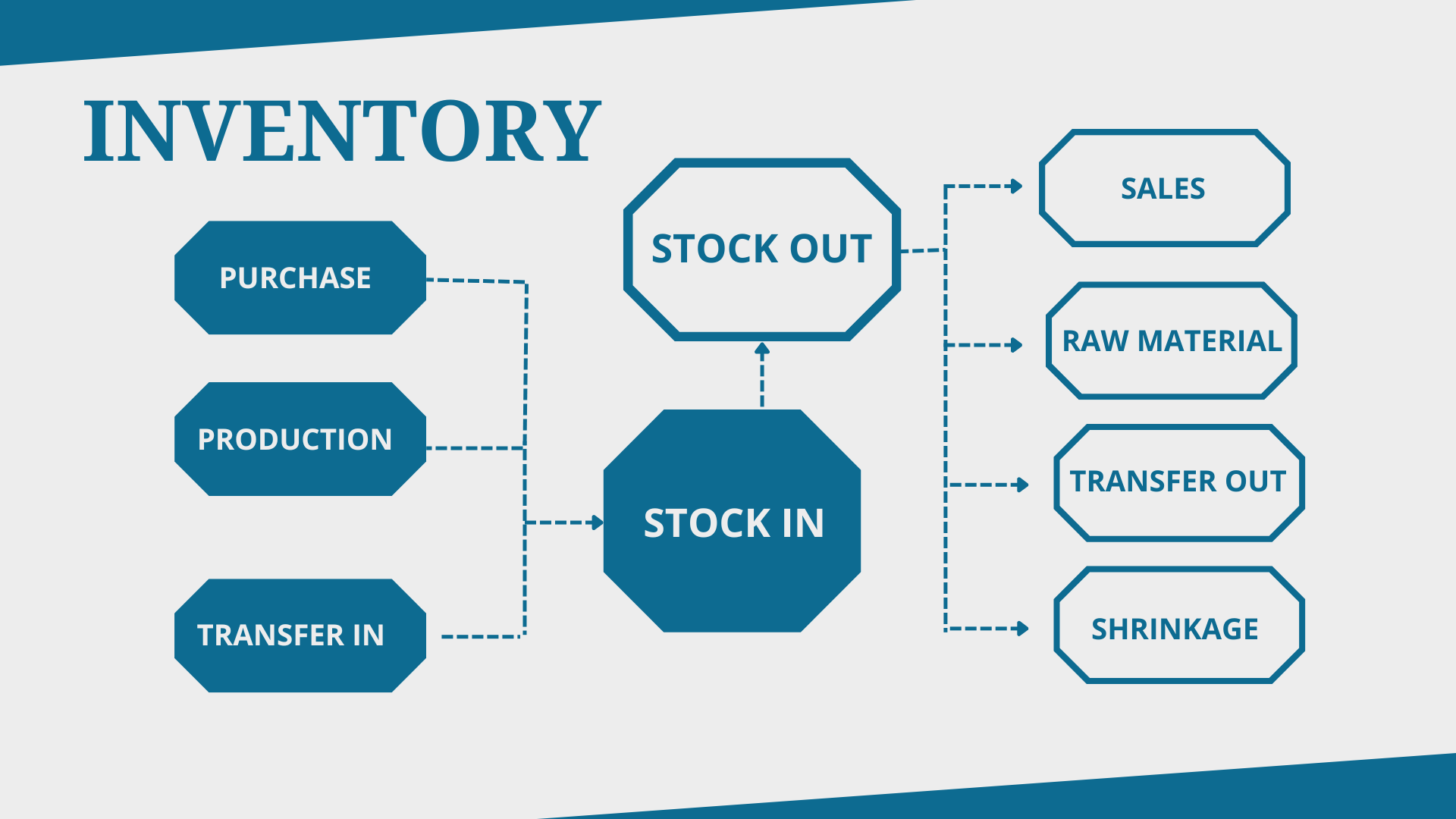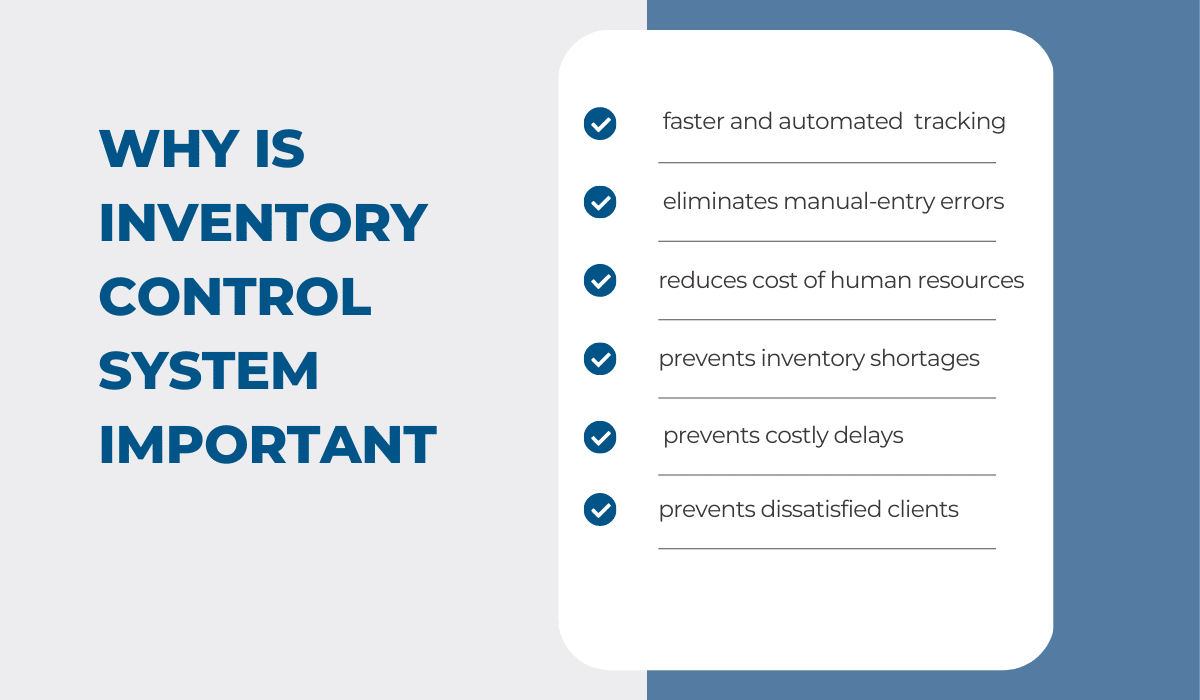1. one reason businesses need an inventory control system is to ensure accurate inventory data, which is crucial for effective decision-making and operational efficiency. Inaccurate inventory data can lead to incorrect production planning, poor customer service, and financial losses. An inventory control system provides real-time visibility into inventory levels, enabling businesses to make informed decisions and avoid costly mistakes.
By implementing an inventory control system, businesses can optimize storage space, reduce waste, and improve customer satisfaction. It helps businesses track inventory levels, identify slow-moving items, and optimize storage space utilization. This leads to cost savings, improved operational efficiency, and reduced inventory carrying costs.
Importance of Accurate Inventory Data
Accurate inventory data is essential for businesses to make informed decisions, maintain operational efficiency, and ensure customer satisfaction. Without accurate data, businesses risk making poor decisions that can lead to financial losses, operational disruptions, and customer dissatisfaction.
Consequences of Inaccurate Inventory Data, 1. one reason businesses need an inventory control system is
Inaccurate inventory data can have significant consequences on decision-making. For instance, overestimating inventory levels can lead to excess stock, resulting in increased storage costs, obsolescence, and reduced profit margins. Conversely, underestimating inventory levels can result in stockouts, which can lead to lost sales, customer dissatisfaction, and damage to reputation.
Operational Inefficiencies
Inaccurate inventory data can also lead to operational inefficiencies. For example, if a business has inaccurate data on the availability of raw materials, it may delay production, leading to lost time and increased costs. Similarly, inaccurate data on finished goods inventory can result in poor order fulfillment, leading to customer dissatisfaction and potential loss of business.
Optimization of Storage Space and Resources: 1. One Reason Businesses Need An Inventory Control System Is
Inventory control systems play a crucial role in optimizing storage space and resources for businesses. They provide real-time visibility into inventory levels, enabling businesses to identify and eliminate unnecessary stockpiles. By streamlining inventory management processes, businesses can reduce storage costs, improve operational efficiency, and enhance overall profitability.
Maximizing Storage Space Utilization
* Implement a first-in, first-out (FIFO) inventory management system to ensure that older inventory is used first, preventing spoilage and waste.
- Utilize vertical storage solutions, such as shelves and racks, to maximize vertical space and minimize floor space requirements.
- Employ automated storage and retrieval systems (ASRS) to improve storage density and reduce manual labor costs associated with inventory handling.
- Regularly review inventory levels and identify slow-moving or obsolete items that can be removed or sold off to free up storage space.
- Establish clear inventory storage guidelines and train employees on proper storage techniques to prevent damage and optimize space utilization.
Improved Customer Service and Satisfaction

Inventory control systems play a pivotal role in enhancing customer service and satisfaction. By providing real-time visibility into inventory levels, these systems enable businesses to meet customer demands efficiently and minimize backorders.
Role of Inventory Control in Meeting Customer Demands
Accurate inventory data allows businesses to forecast demand accurately and maintain optimal stock levels. This ensures that customers can find the products they need when they need them, leading to increased customer satisfaction. Furthermore, inventory control systems can trigger automatic reordering when stock levels fall below a certain threshold, preventing stockouts and ensuring uninterrupted supply.
Prevention of Loss and Damage
Inventory control systems play a crucial role in preventing inventory loss and damage. By tracking and monitoring inventory levels, businesses can identify potential risks and take proactive measures to mitigate them.
Inventory Tracking and Monitoring
Accurate inventory tracking allows businesses to identify discrepancies between physical inventory and records. This helps in detecting theft, shrinkage, or damage early on, enabling prompt corrective actions. Regular inventory audits and cycle counting further enhance the accuracy of inventory data.
Minimizing Loss and Damage
Implementing proper storage and handling procedures is essential for minimizing inventory loss and damage. These include:
- Properly storing inventory in secure and environmentally controlled areas.
- Using appropriate packaging and handling equipment to prevent damage during storage and transportation.
li>Implementing FIFO (First-In, First-Out) inventory management to ensure older inventory is used first, reducing the risk of spoilage or obsolescence.
Compliance with Regulations and Standards
Inventory control systems play a vital role in ensuring that businesses comply with industry regulations and standards. By maintaining accurate and up-to-date inventory records, businesses can demonstrate their adherence to regulatory requirements and avoid costly penalties.
Specific Requirements for Inventory Management
The specific requirements that businesses must meet regarding inventory management vary depending on the industry and jurisdiction in which they operate. However, some common requirements include:
- Maintaining accurate and up-to-date inventory records
- Conducting regular inventory audits
- Following established inventory procedures
- Training employees on inventory management best practices
Implementing Inventory Control Systems for Regulatory Compliance
To implement inventory control systems that meet regulatory compliance, businesses should consider the following steps:
- Identify the applicable regulations and standards
- Develop inventory control procedures that meet the requirements of the regulations
- Implement an inventory management software system
- Train employees on the new inventory control procedures
- Conduct regular inventory audits to ensure compliance
Final Review

In conclusion, an inventory control system is essential for businesses to maintain accurate inventory data, optimize storage space, improve customer service, prevent loss and damage, and ensure compliance with regulations. By implementing an effective inventory control system, businesses can gain a competitive advantage, reduce costs, and improve their overall operational efficiency.
FAQs
What are the benefits of using an inventory control system?
An inventory control system provides numerous benefits, including accurate inventory data, optimized storage space, improved customer service, reduced loss and damage, and compliance with regulations.
How does an inventory control system help businesses optimize storage space?
An inventory control system helps businesses optimize storage space by providing real-time visibility into inventory levels, identifying slow-moving items, and suggesting optimal storage strategies.
How does an inventory control system improve customer service?
An inventory control system improves customer service by ensuring that businesses have the right products in stock to meet customer demands, reducing backorders and improving customer satisfaction.
